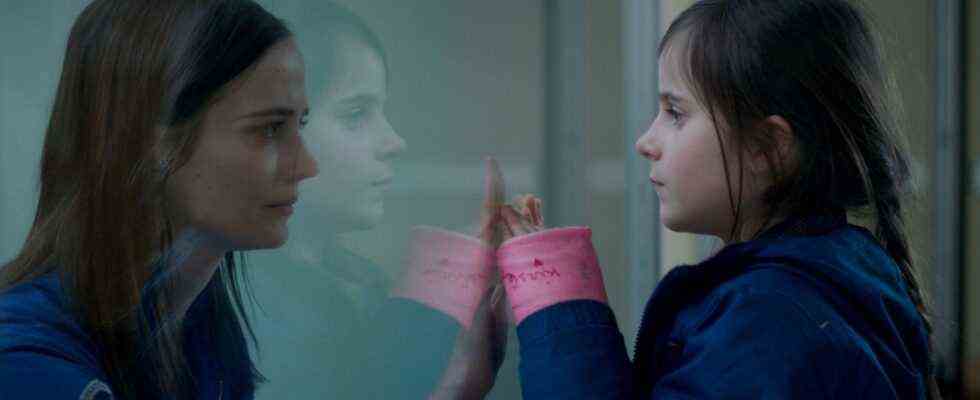For every woman who was once a girl who believed it could be anything, including an astronaut, Alice Winocour’s film feels like hitting an old Russian space capsule on the Kazakh steppe. Without a parachute. With its realism and gray colors, “Proxima” is an exception in the space film genre, which Hollywood often dominates with heroism and bang effects. For that reason alone, this Franco-German film is absolutely worth seeing.
The French astronaut Sarah is selected to take part in the first international mission to Mars. The mission is called “Proxima” because it brings Mars to us next Planet goes. The word has a double meaning for the film, because in order to fly to Mars, Sarah has to say goodbye to a loved one on earth: her eight-year-old daughter Stella. This has already been a topic in Hollywood, most recently in the Netflix series “Away”, in which Hilary Swank left her family behind on earth and had to clarify her daughter’s teenage problems from the spaceship with delayed voice messages. “Away” simply took the classic American family series into space. The result was predictable television kitsch.
“Proxima” is different and much darker, Sarah’s situation more complicated than that of a tidy American suburban mother. She raises Stella alone, with her ex-partner Thomas (Lars Eidinger) she has a difficult relationship. He is a pragmatic astrophysicist who lives in a depressing prefabricated building, he scribbles mathematical formulas on his kitchen doors. And Stella is sensitive and has a hard time at school. She suffers when she has to move in with her father for the duration of Sarah’s training and mission. Sarah, in turn, suffers from this as she is completing a grueling training program far away in the gray-brown Russian “star city”. She cries, a wound doesn’t heal, it always seems to be November outside. You don’t want to call out to her just once in this film: Just leave it, what’s the point of Mars, it’s all too difficult, stay there!
Space travel is a world that men made for men
The way Eva Green and Zélie Boulant-Lemesle play this mother-daughter relationship is intense and great. They alternate between speechlessness, defense, anger and understanding. This always resonates with the undeniable difference that it means when a mother leaves her child instead of a father, even if only for a certain time and an honorable task.
Between pride and a guilty conscience: the astronaut Sarah has to go through exhausting training.
(Photo: – / Koch Films / dpa)
Alice Winocour did a long research for this European space film. She shot on location and worked with the European Space Agency ESA. And she talked to astronauts about their experiences in space travel. It is a world made by men for men, they say. The spacesuits are designed to rest on the shoulders, while in women the hips are stronger. Sarah’s mission commander makes stupid jokes about French women, a Russian stares at her bosom. The tampons will be deducted from the weight allowed for private luggage. As a woman she is a foreign body in this world, just as she will soon be a foreign body in space.
Winocour happily leaves unexplained why she does this to herself. There is no moving memory of night telescope excursions with dad, as a US film would certainly not have left out. There are only small moments of great pride. For example, when Sarah is measured for her own spacesuit or when fridge magnets with her face are offered in a Russian supermarket. The slightly crazy look of intensity that Eva Green always gives her characters may not make them look like a rational engineer. But like a woman with a great, unusual goal, for which she accepts great suffering – hers and that of her daughter. But also like a mother who breaks the rules in order to prove her love for her child again before departure. When little Stella looks out of the bus window in the last scene at the Baikonur space airport, she sees a herd of wild horses running across the steppe, determined, free and beautiful.
Proxima, F / D 2020 – Director: Alice Winocour. Book: A. Winocour and Jean-Stéphane Bron. With: Eva Green, Zélie Boulant-Lemesle, Matt Dillon. Koch Films, 107 minutes.

